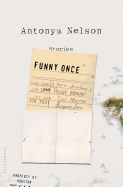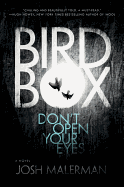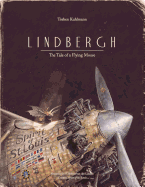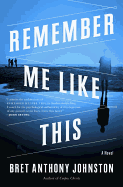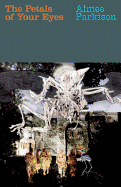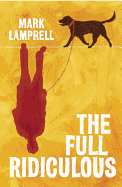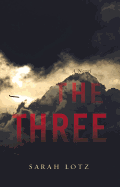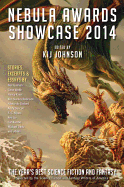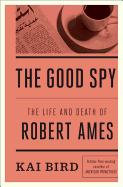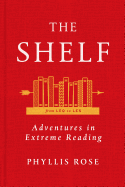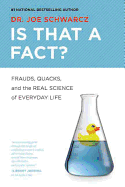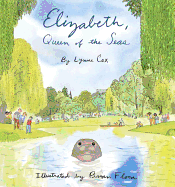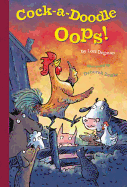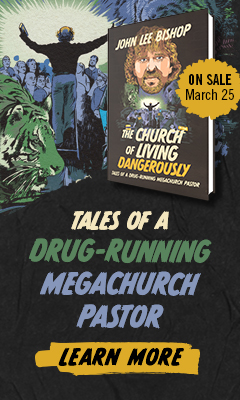Week of Friday, May 23, 2014
"I would really hope this would make people see the short story as an important art, not just something you played around with until you got a novel," Alice Munro said after winning the Nobel Prize in Literature last fall. I hope so, too. If you already read Munro and know that May is Short Story Month, then my work here is done. If not, allow me to spin you a brief tale.
When I think about short fiction, it's not really collections that come to mind, but particular stories. All kinds of stories. I can summon titles that open again in my memory like fans: Grace Paley's "Wants," James Baldwin's "Sonny's Blues," Colum McCann's "Fishing the Sloe-Black River," Tillie Olsen's "I Stand Here Ironing," Jim Shepard's "Batting Against Castro," T.C. Boyle's "Beat," Yasunari Kawabata's "First Snow on Fuji," Jamaica Kincaid's "Girl." We don't memorize short stories like we memorize poems, but something tangible, recoverable, lingers from the stories that strike us most deeply.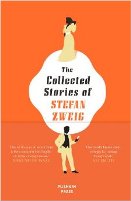 Inspired by Wes Anderson's new film The Grand Budapest Hotel, I've been reading The Collected Stories of Stefan Zweig. It's an extraordinary collection. One tale in particular that has lingered is "Mendel the Bibliophile," in which Zweig writes that "you create books solely to forge links with others even after your own death, thus defending yourself against the inexorable adversary of all life, transience and oblivion."
Inspired by Wes Anderson's new film The Grand Budapest Hotel, I've been reading The Collected Stories of Stefan Zweig. It's an extraordinary collection. One tale in particular that has lingered is "Mendel the Bibliophile," in which Zweig writes that "you create books solely to forge links with others even after your own death, thus defending yourself against the inexorable adversary of all life, transience and oblivion."
A month of stories is not enough, of course, any more than a year or a lifetime of stories would be. But if you're looking for something new to read, why not check out some of the collections we've reviewed here in May: Chestnut Street by Maeve Binchy, Thunderstruck by Elizabeth McCracken, The Wall: And Other Stories by Jurek Becker and American Innovations: Stories by Rivka Galchen. Celebrate Short Story Month before it's too late. Okay, there's no deadline. You can read some in June, too. --Robert Gray, contributing editor
Funny Once: Stories
by Antonya Nelson
In the title story in Antonya Nelson's new collection of dark but dead-on stories of frayed marriages and entangled families, the younger partner of a Houston lesbian couple amuses a dinner party with a clever line she drunkenly repeats three times. Newly abstemious Phoebe, unhappy spouse of Ben, "makes a mental note, in case she went back to drinking: it's only funny once." Phoebe and Ben are typical of the couples in Nelson's stories. She finds something to hate in everything around her, while he is a "professional idealist."
Winner of the 2003 Rea Award for the Short Story and author of seven story collections and four novels, Nelson (Bound) has perfected the fiction of character and place. These 10 new stories are set in her home turf of New Mexico, Texas, Kansas and Colorado--far from the celebrity glare of the coasts. Their characters wrestle with infidelity, inebriation and infirmity. Their parents are suffering dementia and destined for a nursing home--in one story hauled off by their children listening to Tina Turner while "dad was riding in the grody bed of a truck, duct-taped into an easy chair." Their own children grow up distant or isolated, as if "suddenly transformed from the young girl they'd known into the adult they couldn't fathom." With an eye for the humorous contradictions and misplaced passions of people wanting badly but failing to connect, Nelson's stories remind us that in the end there is nothing funny about the emotional distress of relationships--at least not more than once. --Bruce Jacobs, founding partner, Watermark Books & Cafe, Wichita, Kan.
Discover: These wry stories take us to familiar places where infidelity, inebriation and infirmity wreak havoc.
Remember Me Like This
by Bret Anthony Johnston
Bret Anthony Johnston's Remember Me Like This is a staggeringly empathetic novel about a south Texas family's efforts to re-forge their optimism and unity after the return of a long-missing child. Justin Campbell's parents, younger brother and grandfather have all but mourned him for the four years after his abduction. Although Justin's homecoming at the age of 15 brings joy and relief, it cannot instantly make him or his family whole.
With great insight and delicacy, Johnston (Corpus Christi) shows how each family member monitors Justin while simultaneously struggling with his or her own adjustment to the "façade of normalcy," a process made more difficult when the legal process fails to protect them from further psychological torment. Mercifully, Johnston avoids tragedy voyeurism by presenting the details of the crime in oblique shards and by emphasizing the family's forward-moving emotional resolve over its painful history.
Johnston invests the scenes of the Campbells' lives on a small island off the coast of Corpus Christi with so much hue, richness and galvanizing conflict that the novel comes across as a lyrical counterpunch to the assault of abduction. There are Shrimporees and family barbecues, a treasured skateboard terrain, a compelling assortment of family pets, earnest conversations in trucks, shifts at a dolphin rescue center, escapist afternoons, grandfatherly pawn shop wisdom, marital rapprochements and unhackneyed teenage courtship.
The last quarter of Remember Me Like This accelerates some surprising plot elements without sacrificing poignancy. And though the epilogue's twist might have been more effective if integrated into the body of the novel, its cathartic power remains irresistible. --Holloway McCandless, blogger at Litagogo: A Guide to Free Literary Podcasts
Discover: A novel about a south Texas family's determination, fallibility and grace in the aftermath of an abduction.
The Petals of Your Eyes
by Aimee Parkison
In a lovely mansion tucked in the shadows of an unnamed jungle, there is a secret theater where kidnapped children are kept in cabinets and sold to "theatergoers" as part of an obscure sex trade. Aimee Parkison's debut novel, The Petals of Your Eyes, is narrated by one of these children--a girl stolen from her family and stripped of her name like all the other enslaved children. To save themselves, the captives rename each other after flowers: the Gardenia, the Rose (our narrator). It is a thin demonstration of hope that veils nightmarish realities of a deeply perverse and violent world.
The theater, as seen through the eyes of the young narrator, is full of suspense and constant motion. Everything seems to be shivering, roiling, convulsing, as though in a state of ecstasy, pain, or both: "Outside the theater, the head stagehand's knives mimic the flight of sparrows by twilight, men's coins thrown down at the tree where we children dance through flame to wave singed feathers, carving names through air."
Often, The Petals of Your Eyes reads less like a traditional story than a montage of macabre and gorgeous images, dripping with beauty and pulsing with fear. Exotic birds fly among leather-masked falcons that attack the faces of powerless actors. The bones of infants are dug up and strung into puppets to amuse the children. In such a world, beauty only sharpens terror, luring the reader in before revealing the horrors of sadism, lust and the insatiable thirst for power. --Annie Atherton
Discover: A darkly beautiful, surreal novel about children trapped in an obscure sex trade.
The Full Ridiculous
by Mark Lamprell
Being a film critic isn't exactly lucrative, but Michael O'Dell isn't doing so badly. Though he lost his job as a newspaper columnist, he's taking this time to write the ultimate coffee-table book on Australian cinema. That is, until he's hit by a small blue sedan while jogging. Remarkably, he's not even paralyzed. In fact, it looks like Michael is going to be just fine.
It quickly becomes clear, though, that the accident was just the beginning of a downturn. When Michael's daughter gets into a fight with a classmate, that girl's powerful parents begin to mount an out-of-scale series of legal proceedings as punishment. Michael's son seems to have fallen in with some drug dealers, but his parents are too distracted to deal with it beyond periodically flushing the contraband down the toilet. Between mounting bills, a series of bizarre parent-teacher conferences, and the weird policeman who's stalking their family, it's hard to imagine anything ever being normal again.
The Full Ridiculous is a madcap family comedy in the tradition of Where'd You Go, Bernadette. Author Mark Lamprell is a director and screenwriter, and his debut novel showcases the strengths of his film background. The absurdity of the plot is balanced by the appealing, well-rounded characters and their uncontrived relationships. The writing is clean and hilarious, and the second-person narration feels intimate rather than distracting. In the end, this is a book about family, and about just how bad things have to get before one man realizes family is all he ever needed. --Emma Page, bookseller at Wellesley Books in Wellesley, Mass.
Discover: A hilarious, high-speed summer read in which a car crash that should be the end turns out to be just the beginning.
Mystery & Thriller
Bird Box
by Josh Malerman
From the very first pages of his debut novel, Josh Malerman drops readers into a world both familiar and terrifying: "The children sleep under chicken wire draped in black cloth down the hall.... This was once a nice house in a nice suburb of Detroit.... But this morning, the windows are covered with cardboard and wood. There is no running water.... They do not go outside for long periods of time. When they do, they are blindfolded." Artfully playing on our fear of the unknown, Malerman defines a world in which something has arrived on Earth--something that, when one looks upon it, causes instant madness and deadly violence. The few remaining survivors have largely hidden indoors, sheltered behind closed doors and curtained windows. Venturing outside requires extreme caution and a covering over the eyes.
Written in the present tense, the chapters toggle between the movements of Malorie and her two young children throughout one very long and scary day navigating a 20-mile river trip while blindfolded and Malorie's memories of the last half-decade that led up to that day. Although graphic in some spots, most of the page-turning tension is produced by what is not seen, but heard and felt and imagined as Malerman explores the world of the senses and the way humans interact with one another when trapped in a house together for a long period. Be prepared to read this in one sitting. --Lee E. Cart, freelance writer and book reviewer
Discover: A chilling debut in which a woman cannot look at what lurks outside the door if she has any hope for survival.
The Three
by Sarah Lotz
South African writer Sarah Lotz's The Three begins on January 12, 2012--later known as Black Thursday--when four airplanes crash in different parts of the globe. Except for the plane that crashes in Africa, each flight leaves a sole child survivor. The children are dubbed the Three by the media, which go wild with conspiracy theories about how these kids survived such disasters.
In the aftermath, the questions shift from how and why they survived to who they really are: relatives of the children notice they're not quite the same as they were before the crash. Unexplainable things start happening around them--some good, some benign, some creepy. Are these children miracles, harbingers of the end times, aliens or simply traumatized innocents hounded by the media and gullible masses?
The story is presented as a book within a book, a journalist's nonfiction tome called Black Thursday: From Crash to Conspiracy that includes interviews and conversations with people connected to the crashes. Lotz writes convincingly in the different voices of the interviewees, men and women from different ethnicities, regions and walks of life. The sense of dread builds as the characters' paranoia mounts, and some plot twists are shocking. The coincidence of this novel's debut so soon after the real-life disappearance of Malaysia Airlines Flight 370 only adds to the eeriness. The ending may be frustratingly ambiguous for some, but this epic tale shouldn't be missed. Just don't read it on a plane. --Elyse Dinh-McCrillis, blogger at Pop Culture Nerd
Discover: An exploration of three mysterious survivors from four planes that crashed on the same day.
Science Fiction & Fantasy
Nebula Awards Showcase 2014
by Kij Johnson, editor
Don't be fooled by the date in the title: this volume of winning and nominated stories from the Science Fiction & Fantasy Writers of America's annual Nebula Awards reprints a number of the 2012 Awards' highlighted works. It contains some of the best fiction in the genre, including winning short pieces by Andy Duncan (Best Novelette) and Aliette de Bodard (Best Short Story). The Damon Knight Grand Master award winner, Gene Wolfe, is also represented, with his ominous horror story "Christmas Inn."
The longest piece in the anthology is the Nancy Kress's Best Novella winner. "After the Fall, Before the Fall, During the Fall" explores what it means to be human through the experience of Pete, a 15-year-old boy who must travel back in time to steal children. His aim is to repopulate their future (and his present) Earth. It's a devastatingly poignant portrait of our capacity for love, delayed gratification and violence.
Not everything here is heavy. Best Short Story finalist Ken Liu's entertaining, thoughtful "The Bookmaking Habits of Select Species" imagines how wildly divergent alien species might pass along information to future generations: "Yet every species has its unique way of passing on its wisdom through the ages.... Everyone makes books." Here, too, is poetry, an essay by Neil Gaiman ("How to Read Gene Wolfe") and an excerpt from the winner of the Andre Norton Award for Young Adult Science Fiction and Fantasy, Fair Coin by E.C. Meyers.
This brilliant compilation is a pure snapshot of the current state of the art in the genre and deserves attention. --Rob LeFebvre, freelance writer and editor
Discover: Recent award-winning SF and fantasy stories, poems and essays selected by working writers of the Science Fiction & Fantasy Writers of America.
Biography & Memoir
The Good Spy: The Life and Death of Robert Ames
by Kai Bird
On April 18, 1983, a truck loaded with explosives crashed into the lobby of the United States embassy in Beirut, Lebanon. Today, it's "a largely forgotten moment in the history of America's presence in the Middle East," Kai Bird (Crossing Mandelbaum Gate) writes in The Good Spy, but one with great underlying significance--"the beginning of America's deadly encounter with a political Islamist movement."
Among the 63 people killed in the bombing was Robert Ames, a CIA agent who had played a pivotal role in establishing a line of communication between the U.S. government and the Palestinian Liberation Organization. The Good Spy pays tribute to his accomplishments and sacrifice; though it was written without any official cooperation from the CIA, more than 30 retired officers shared their personal and professional recollections. The portrait of Robert Ames that emerges is that of "a model intelligence officer," who'd become captivated with the Arab world after a stint in the army where he'd been assigned to a Cold War listening post in equatorial Africa. He applied to the CIA after his initial efforts to join the Foreign Service failed and quickly distinguished himself with the depth of his immersion into the local cultures at his postings.
"The point was to influence the course of history--to create a better world," Bird says in describing Ames's views--and, he'd made significant headway toward that end, until subsequent events, including the terrorist attack that took his life, made the goal of a true peace in the Middle East that much harder to achieve. --Ron Hogan, founder of Beatrice.com
Discover: A Pulitzer Prize winner's biography of an unsung hero who felt a genuine calling to his intelligence career.
Essays & Criticism
The Shelf from LEQ to LES: Adventures in Extreme Reading
by Phyllis Rose
In 2011, biographer Phyllis Rose (author of the National Book Award finalist Woman of Letters) had a reading epiphany: most of us choose to read books prescribed by reviewers, awards panels, librarians and teachers. If we limit ourselves to the current and the canonical, she wondered, what are we missing? She decided to sample one shelf of fiction--LEQ to LES--in an Upper East Side library as a representation of the whole library. Her criteria: the shelf must include a classic she hadn't read, nothing written by her acquaintances, and no more than four books per author. The Shelf from LEQ to LES is the story of Rose's experiment in what she calls "extreme reading."
Rose's discussions of the books themselves are thoughtful and intelligent, but the heart of The Shelf is the undertaking as a whole rather than the titles read. Without the framework of recommendations, Rose builds her own context for and relationship with the 23 books and 11 authors on her shelf. She reaches out to editors, reviewers, a cover designer and two of the authors in an effort to understand how each book works, or doesn't. In the process, she explores broader bookish issues: the interaction between translator and text, how libraries decide which books to discard, the thorny questions that still surround women and literary achievement, how novels such as Gaston Leroux's The Phantom of the Opera survive in popular imagination long after they're no longer regularly read.
Written in the vein of Tolstoy and the Purple Chair, Rose's volume may well inspire readers to undertake their own adventures in extreme reading. --Pamela Toler, blogging at History in the Margins
Discover: A library experiment that yields the pleasures of reading without a safety net.
Science
Is That a Fact?: Frauds, Quacks, and the Real Science of Everyday Life
by Joe Schwarcz
Are genetically modified foods bad for the environment? Do organic foods provide any health benefits? Does the recently reviled plastic ingredient Bisphenol-A (BPA) cause birth defects? Joe Schwarcz (An Apple a Day), director of McGill University's Office for Science and Society, explores these questions and many others in Is That a Fact?
Schwarcz offers three color-coded sections: black for complete quackery, gray for mixed opinions, white for confirmed facts. Each section has about two dozen short essays that can be read in any order. Readers can binge on an entire section or select bite-sized morsels about topics such as diet hype or homeopathy (the latter, as far as Schwarcz is concerned, boils down to magic placebo water). Schwarcz is particularly adept at uncovering the ultimate financial beneficiaries of unsound science and the cultural factors that occasionally perpetuate fraudulent claims. The recent crusade against "pink slime" (an additive used in ground beef products) was an unscientific affair, but Schwarcz does credit chef Jamie Oliver for his general efforts to improve nutrition. Dr. Oz is another mixed bag: Schwarcz believes he has good intentions, but his promotion of diet "miracles" is driven by ratings, not science.
The final section (confirmed facts) is less focused than the other two. Schwarcz wanders between topics as disparate as dry ice and airport security. The diminished momentum and scathing charm are the only casualties, though; he loses none of the layman-friendly clarity and wit that makes Is That a Fact? accessible to any reader. --Tobias Mutter, freelance reviewer
Discover: An accessible deconstruction of the science, or lack thereof, behind a variety of health and chemistry claims.
Children's & Young Adult
Lindbergh: The Tale of a Flying Mouse
by Torben Kuhlmann, transl. by Suzanne Levesque
The illustrations by debut German artist and author Torben Kulmann make this tale of an aviator mouse soar.
The unnamed furry hero hides out, "sometimes for months," to read books. Upon his return from one of these stretches, the city is quiet, "too quiet." The mouse soon discovers his friends' disappearance points to a new invention: they've all fled the mousetrap. The hero decides to travel to America, where "a huge statue greeted all who arrive there, whether human or mouse." After several thwarted attempts to travel by sea ("hungry cats" anticipate his every move), his encounter with "flying relatives" (bats) gives the fellow an idea. Kulmann's sepia-toned illustrations realistically depict the enchanting mouse hero holding a charred matchstick with his front paws, drafting designs of various contraptions for his airborne escape, and carrying the materials required (gears, twine, scraps of wood). Readers will be willing to overlook a few omitted details (e.g., how did the little plane carry enough fuel for the Atlantic crossing?), in favor of the spectacular images.
The most glorious views feature the contrast between the mouse's size and his sprawling environs: his inaugural launch from a clock high in the Hamburg Hauptbahnhof train station, another from a crane above the Port of Hamburg, and a third as he ascends the tower of St. Michael's Church. Three's the charm, and off he flies, with a steamship as his guide, and a warm welcome from mice and newsmen (whose articles gain notice from a boy named Charles Lindbergh). Kuhlmann is an artist to watch. --Jennifer M. Brown, children's editor, Shelf Awareness
Discover: The accomplished artwork of debut German author-artist Torben Kuhlmann features an enchanting mouse hero.
Elizabeth, Queen of the Seas
by Lynne Cox, illus. by Brian Floca
This charming tale of where nature and human civilization intersect stars a real-life elephant seal named Elizabeth who knows where her home is.
Long-distance swimmer Lynne Cox (Swimming to Antarctica; Grayson) met Elizabeth when she traveled to New Zealand to swim the three lakes near Mount Cook. The elephant seal lives in the Avon River, which flows through Christchurch. Brian Floca's (Locomotive) opening light-filled watercolor scene depicts an idyllic park on the Avon's shores, where families push strollers, walk dogs and ride in a gondola, and the city bustles just outside its perimeter. There in the middle of the river swims a seal. Author and artist describe her routine: swimming, covering herself with wet mud to cool down, and even stretching out her eight-foot length across a two-lane road. The people of Christchurch name her after the Queen of England for her "strong and powerful and regal" manner. But they worry that she could get hit or cause an accident due to her habit of stretching across the road. So some volunteers tow her away to an ocean community of elephant seals.
Cox conveys the seal's importance to the town by highlighting the rapport between a boy, Michael and Elizabeth. He calls out to her every day on his way to and from school, and she snorts back twice. He's devastated when they take Elizabeth away to a seal colony ("This is where she belongs!" he cries) and thrilled when she finds her way back--three times. A smart solution keeps the city folk and the seal satisfied. --Jennifer M. Brown, children's editor, Shelf Awareness
Discover: A charming true story of an elephant seal more at home with humans than her own kind.
Cock-a-Doodle Oops!
by Lori Degman, illus. by Deborah Zemke
No one can set the barnyard in motion like rooster can, as the farmyard beasts and fowl discover in this humorous farce.
The opening lines set the tone: "Farmer McPeeper was such a deep sleeper,/ not even an earthquake could shake him./ A poke or a pinch wouldn't budge him an inch,/ 'cause only his rooster could wake him." With a gently lilting rhyme, Lori Degman (1 Zany Zoo) spells out Rooster's plan to take a week's seaside vacation ("I'll sleep just as late as I please," says he) and the calendar marked daily with the animal whose duty it is to "cock-a-doodle-doo" in his absence. But Cow's "Cock-a-doodle-moooooo!" is an "udder disaster," and Chicken's "cock-a-doodle-cluck" doesn't "have any pluck." Deborah Zemke's (Doodles at Dinner) images of the critters attempting to wake Farmer McPeeper each dawn make the most of the comical situation. Her black outlines shimmer with the animals' nervous energy and sense of responsibility as the days tick by on the calendar in the upper left-hand corner, along with the featured animal attempting to wake the farmer.
In a funny surprise ending, Rooster's homecoming doesn't entirely remedy the situation, and the animals must band together to come up with a viable solution. Youngest readers will learn animal sounds and days of the week, while beginning readers will welcome the upbeat rhymes. --Jennifer M. Brown, children's editor, Shelf Awareness
Discover: An entertaining barnyard romp in which Rooster takes a vacation, and the other animals try to rouse the farmer.
| the church of living dangerously |
|


